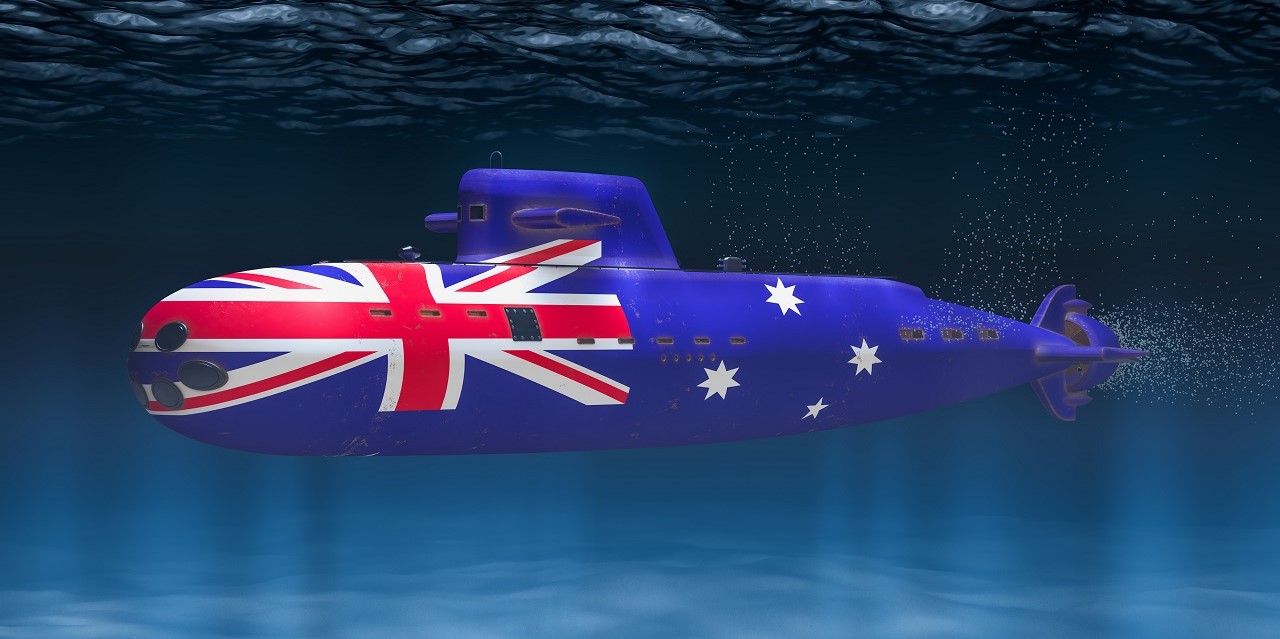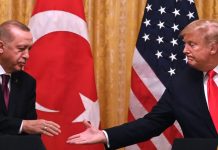Canada has indicated that it is contemplating joining the AUKUS amid reports that the United States, Britain, and Australia have plans to bring new members into their security pact.
Canadian Prime Minister Justin Trudeau announced on April 8 that his country was considering joining the AUKUS alliance as it might require nuclear submarines to patrol its Arctic waters.
Referring to the possibility of joining the trilateral security pact, Trudeau said to have already had “excellent conversations” with the US, UK, and Australia.
He made the comments in conjunction with the unveiling of the federal government’s defense strategy review, which is centered on strengthening Canadian sovereignty in the North. The strategy seeks to increase military spending to 1.76 percent by 2030 and include new submarines, long-range missiles, and early-warning planes.
Founded in September 2021, AUKUS is a defense alliance that seeks to assist Australia in building its first nuclear submarines by sharing nuclear submarine technology. Many well-known officials and analysts from member states have suggested Canada as a potential candidate for membership, including the former British Prime Minister Boris Johnson.
In what appeared to be a reference to China’s challenge to the alliance, Trudeau stated that it was “really important that allies, particularly across the Indo-Pacific, work together in stronger and tighter ways.”
Additionally, he said, “We will be looking at what type of submarines are most appropriate for Canada’s responsibility in protecting the longest coastline in the world, and certainly the longest Arctic coastline in the world.”
BREAKING:
Canada announces it’s considering joining the AUKUS alliance (USA, UK & Australia) & buy nuclear submarines with under-ice capabilities to patrol its Arctic coastline
Trudeau says it will become particularly important as trade via the Northwest Passage will increase pic.twitter.com/75CfSHMPU2
— Visegrád 24 (@visegrad24) April 8, 2024
There has been positive momentum in Canada for acquiring nuclear submarines and becoming an AUKUS member. Last year, a standing senate committee advised the government to replace its aging submarines with new ones that can operate more effectively in the Arctic region and sail beneath ice.
Unlike nuclear-powered submarines, Canada’s four current submarines are refurbished versions of variants that were first constructed by Britain in the 1980s and are not intended for use below ice, a concern expressed by the standing committee which has warned Ottawa of an enhanced security threat from Russia and China.
The comments from the Canadian Prime Minister, however, come at a time when there is speculation that the AUKUS members were looking to welcome Japan into the alliance. The three nations reportedly announced they were considering inviting Tokyo to become a signatory to the second phase of the agreement, referred to as Pillar II.
“Recognizing Japan’s strengths and its close bilateral defense partnerships with all three countries, we are considering cooperation with Japan on AUKUS Pillar II advanced capability projects,” the defense chiefs from the three countries were quoted as saying.
There is speculation that US President Joe Biden and Japanese Prime Minister Fumio Kishida will likely discuss expanding AUKUS to include Japan when the president hosts the prime minister in Washington. Moreover, reports suggested that the UK indicated that talks with Japan and other possible partners would start later this year.
However, the third alliance member, Australia, has not been very forthcoming with the idea of opening the trilateral alliance. Australia brushed the rumors that Japan might soon join the AUKUS security alliance alongside the US and Britain, stating that any collaboration would be project-specific as disagreements about the alliance’s expansion surface.
Having said that, China seems to be visibly rattled despite no official confirmation of new members being admitted to the AUKUS Alliance. Chinese analysts have warned that the expansion would be tantamount to creating an “Asian NATO.”
China Left Fuming At Idea Of AUKUS Expansion
Chinese Foreign Ministry spokesperson Mao Ning expressed China’s serious concerns about the expansion, stating that the US, UK, and Australia have continued to send signals of AUKUS expansion, coerce some countries to join, and escalate the arms race in the Asia-Pacific to the detriment of peace and stability in the region, all in defiance of the concerns expressed by regional nations and the international community regarding the risk of nuclear proliferation.

The spokesperson said in a press briefing, “We oppose relevant countries cobbling together exclusive groupings and stoking bloc confrontation,” emphasizing that Japan in particular needs to sincerely learn from the past and exercise caution when it comes to military and security matters.
Additionally, Chinese commentators also expressed anxiety over the agreement’s worrying transformation into an “Asian NATO,” citing increased militarization in Japan and possible destabilization in the area.
Xiang Haoyu, a research fellow at the China Institute of International Studies, told the state-owned publication Global Times that the US has been pushing to invite more nations to join “pillar two” to enhance AUKUS’ influence, implement its Indo-Pacific strategy and maintain its hegemony.
Moreover, he noted that the US hopes to form multiple coalitions to besiege China by pressuring more nations, including the Philippines and South Korea, to join AUKUS and other US-led minor cliques. According to Xiang, the goal of these initiatives is to obtain the upper hand in the strategic rivalry with China.

Several Chinese experts said that the countries in the region have serious concerns about the formation and growth of AUKUS, especially in light of the proliferation of nuclear weapons. They underscored that the military alliance is an elite group with roots in a Cold War mindset, despite efforts by member governments to present it in a favorable light.
AUKUS, along with other smaller coalitions led by the US, may potentially increase the likelihood of arms races and conflicts in the region, analysts cautioned, especially if it meddles in contentious matters like the Taiwan dispute or the South China Sea
- Contact the author at sakshi.tiwari9555 (at) gmail.com
- Follow EurAsian Times on Google News




